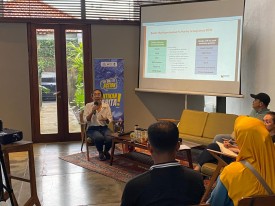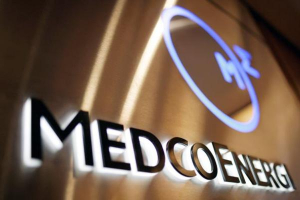Jatam slams nickel mining policies, citing social and environmental costs
The Mining Advocacy Network (Jatam) has criticized the government’s promotion of nickel mining and downstream processing policies for ignoring the staggering costs of environmental degradation and social disruption endured by local communities.
“The pride that was once celebrated in these policies is hollow if it only measures state revenue while completely neglecting the environmental and social damage our people suffer,” Jatam chairman Melky Nahar said in a discussion held at the Jakarta Legal Aid Institute in Jakarta on Monday, February 17, 2025.
He pointed to the tin mining case − where forest degradation has been estimated to cost nearly Rp300 trillion (US$ 20,27 billion) − as evidence that similar hidden costs are being overlooked in the nickel sector.
Nahar further criticized the controversial decision to grant mining concessions to higher education institutions.
“Universities are meant to be bastions of knowledge and culture, not profit-driven entities managing mines. Redirecting funds by involving them in mining projects is a misguided justification for chronic funding shortages,” he asserted.
He cited that such moves risk transforming these academic institutions into agents of an extractive economy, potentially exacerbating extreme poverty in central nickel regions − a reality starkly illustrated in the “Bloody Nickel” film series produced by Watchdoc.
He also warned of the impact of rapid expansion of nickel mining in eastern Indonesia.
“We are witnessing an acceleration of mining activities at a pace that endangers our environment and communities. The current policies only serve the interests of political elites and ex-activists who believe they can change the system from within, but they are turning a blind eye to the real costs inflicted on our nation,” he said.
As the debate over the future of Indonesia’s mining policies intensifies, Nahar’s comments underscore a pressing need for a balanced approach − one that weighs economic benefits against the long-term well-being of the environment, society, and the integrity of educational institutions
Tag
Already have an account? Sign In
-
Start reading
Freemium
-
Monthly Subscription
30% OFF$26.03
$37.19/MonthCancel anytime
This offer is open to all new subscribers!
Subscribe now -
Yearly Subscription
33% OFF$228.13
$340.5/YearCancel anytime
This offer is open to all new subscribers!
Subscribe now






